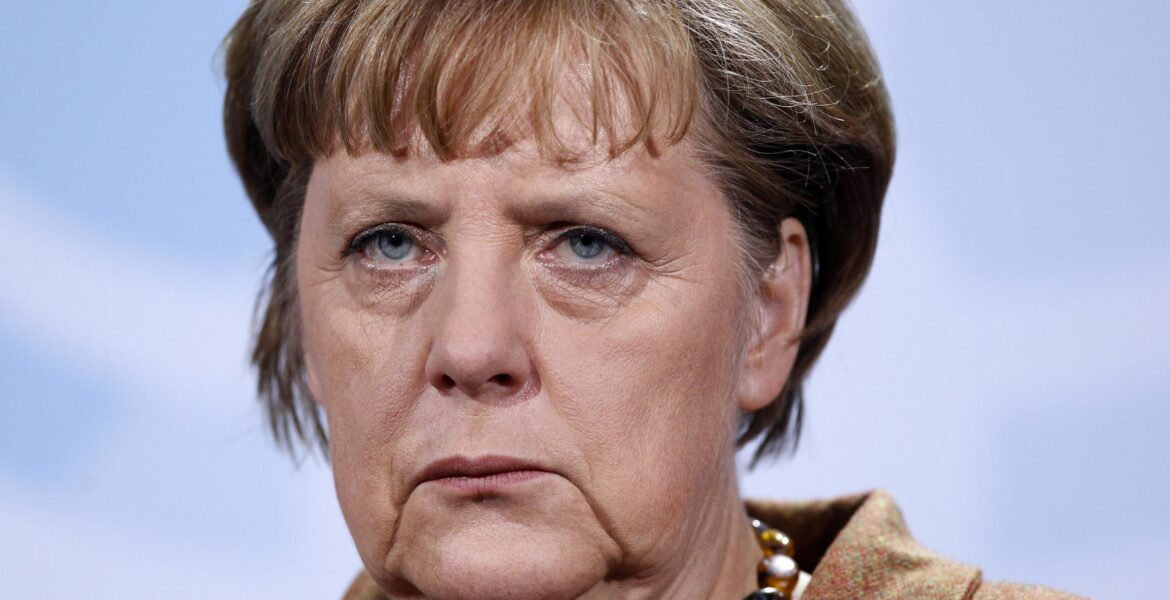"The most difficult moment of my term was when I asked for so much from Greece," German Chancellor Angela Merkel said yesterday, after 31 years in the Bundestag and 16 years in the Chancellery, making a confessional public report unprecedented in her political temperament.
It certainly coincided with her final, as she has stated, farewell to the political scene, and Greek media immediately caught on fire.
Why did the Chancellor make this statement before her final "goodbye" to politics at the end of this year?
Is this really a brave public self-criticism?
"It is not certain that her statement today contains any self-criticism - it is likely that Angela Merkel just said what she felt then: a heavy burden on her shoulders, from which she looked mainly at how to get rid of it, without possibly realising what it would leave behind her," answered Faye Karaviti, the person who relayed the news from Germany to Greece about Merkel's statement.
"Angela Merkel's political legacy will inevitably be determined by the crises she endured during her 16-year tenure - which were probably more than she could be attributed to: the 2008 international financial crisis, the euro crisis, the refugee crisis, the pandemic," Karaviti said.
"The fact that the Chancellor, of all the issues she has been called upon to face over the years, chose shortly before her departure from politics to single out the European crisis and the harsh measures imposed on Greece is characteristic of the atmosphere that prevailed in Athens and Brussels, but also in Berlin," she continued.
"In fact, Mrs. Merkel herself has previously stated that it was extremely difficult for her to push in the direction of austerity, cuts and restrictions," Karaviti added.
When asked if the public self-flagellation was honest or does Merkel want to make an impression before it leaves the chancellery and politics, she said:
"Because Angela Merkel is not used to lying to us in public, I think that indeed, the decisions from 2010 onwards were not pleasant for her," adding that "in all other crises - even in refugee - she had the role of 'good' - even if it then cost her politically.
"Even in the pandemic, she seemed to understand quite quickly what to do and people appreciated it. "We saw then that her popularity rates skyrocketed.
"On the contrary, in the Greek crisis, almost everyone was against it.
"In Greece she was portrayed as Hitler, in Germany others accused her of not being European enough and condemning Greeks to poverty, and others of not punishing them enough, ignoring the interests of German taxpayers.
"Furthermore - because we in Greece underestimate this, the crisis gave birth "to the far-right Alternative for Germany (AfD), which, with the help of the refugee, remains to this day the only party to the right of the Christian Democratic.
"Her party never forgot this and charged in 2018.
"So Angela Merkel is not lying when she describes the European crisis as one of the most difficult moments of her career.
"As she said yesterday, people lost their jobs, incomes fell and she was portrayed with a Hitler mustache as the 'bad woman' to blame for all the suffering.
"At the same time, I think she remains convinced that the measures, despite any contradiction, should have been imposed.
"As she believes, she was right to insist that Greece remain in the Eurozone, despite the opposite view of Wolfgang Schäuble."
"However, the woman who led Germany for 16 years was not a convinced European from the beginning.
"She simply could not be, after all, the way she grew up.
"In the process, she realised the breadth and depth of the Union and, to a lesser extent, the importance of its cohesion.
"Again, Helmut Kohl's 'European passion' was probably never acquired."
READ MORE: Merkel’s belief that Nord-Stream 2 will be redundant by 2046 was for short-term political gain.


